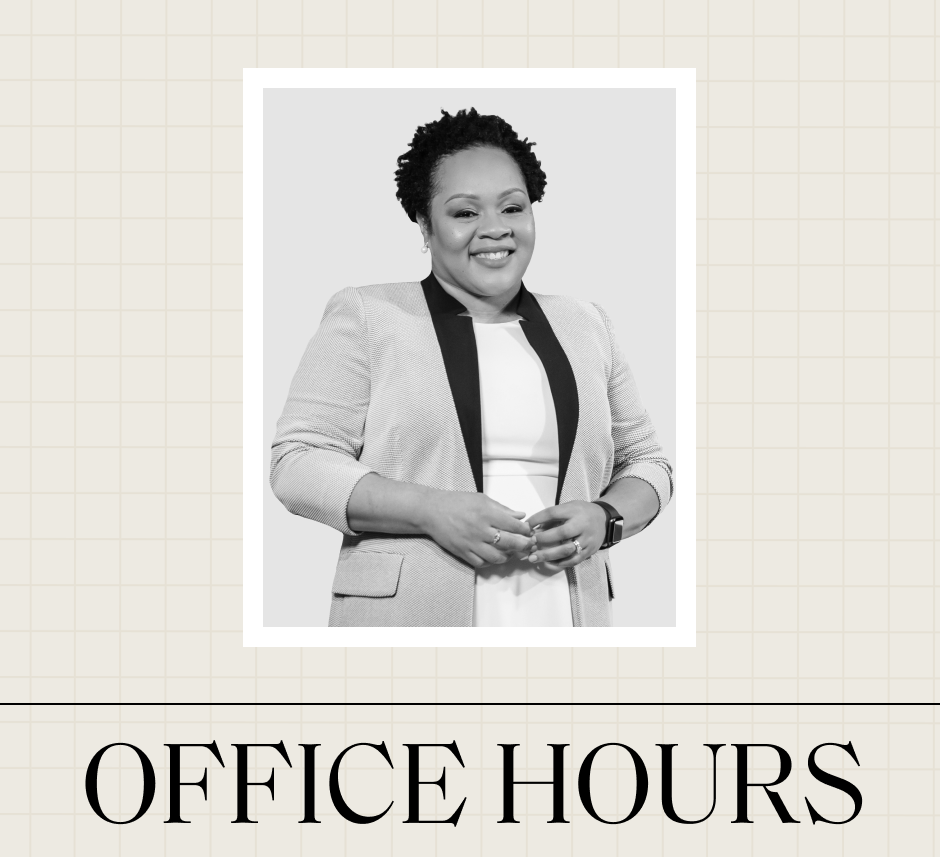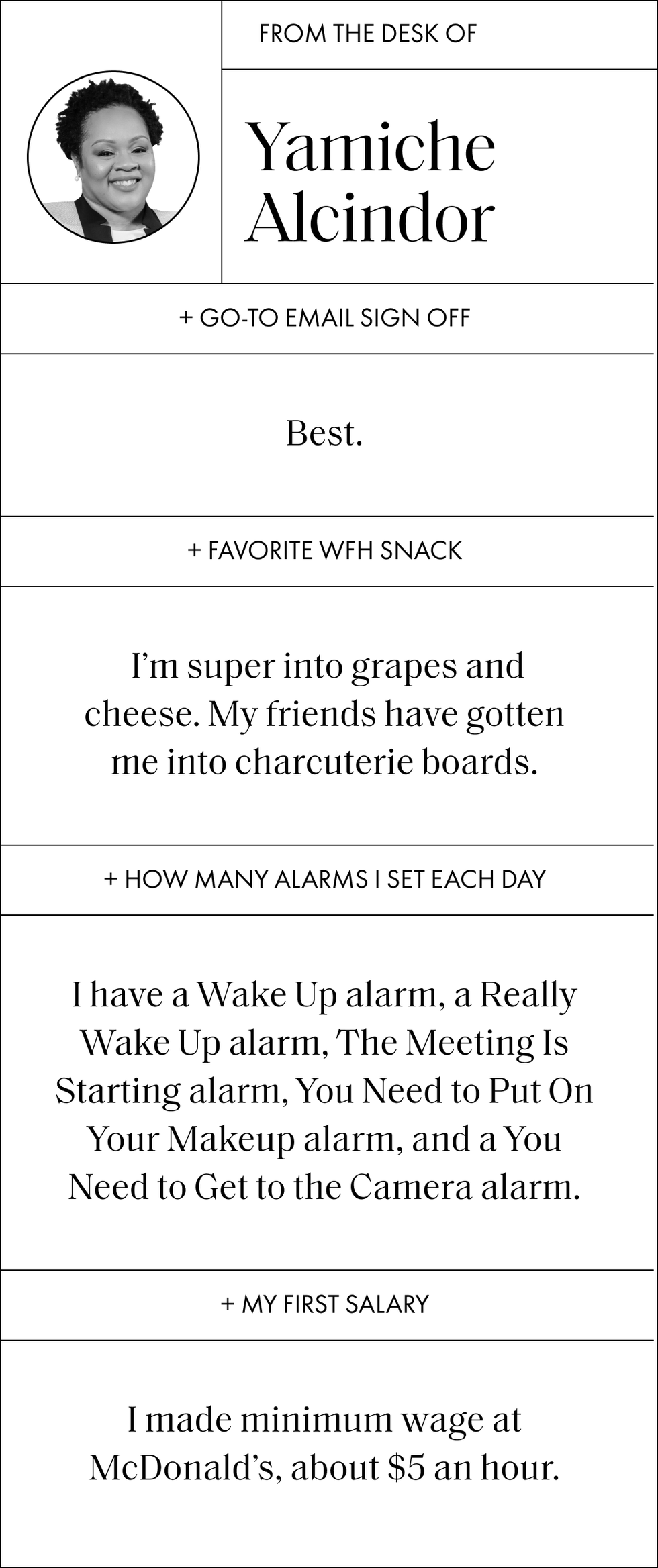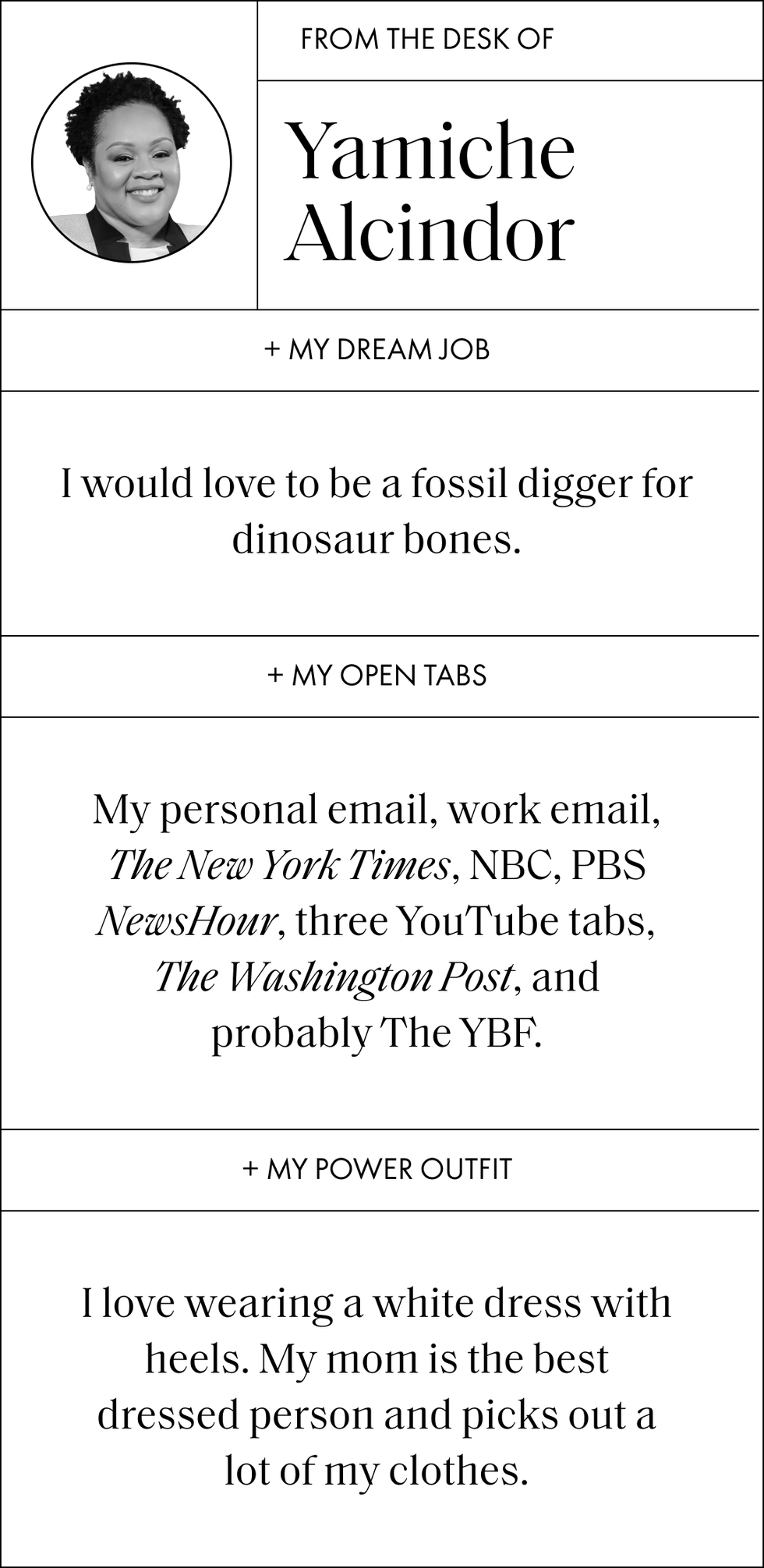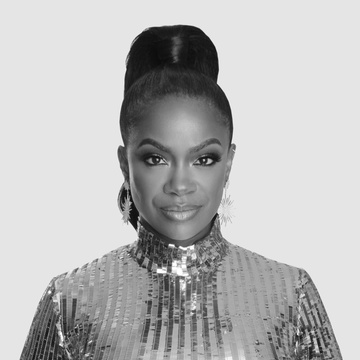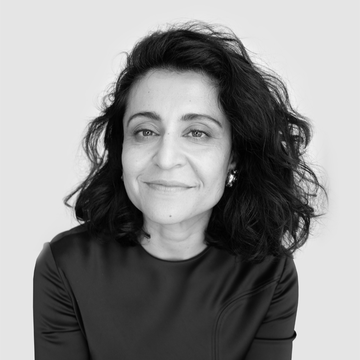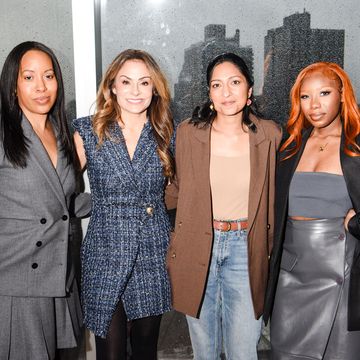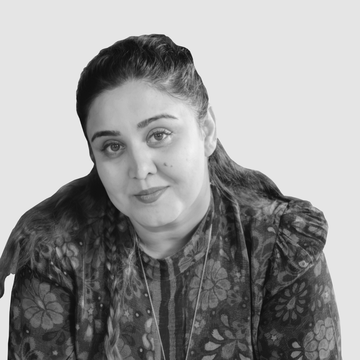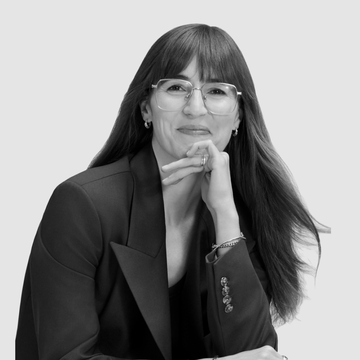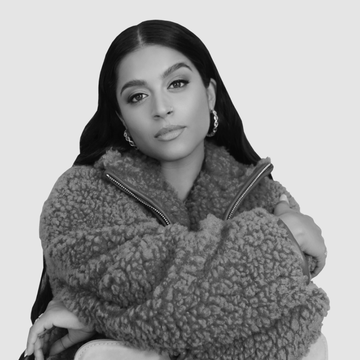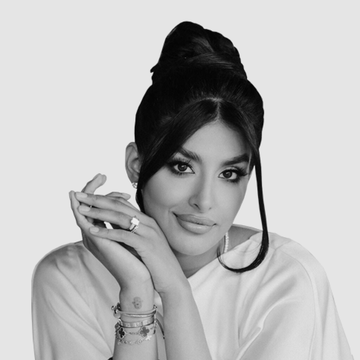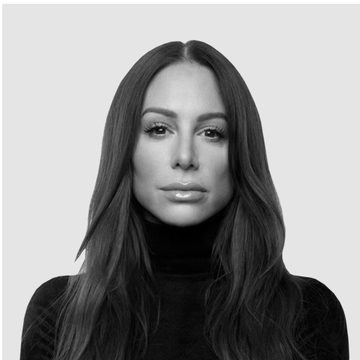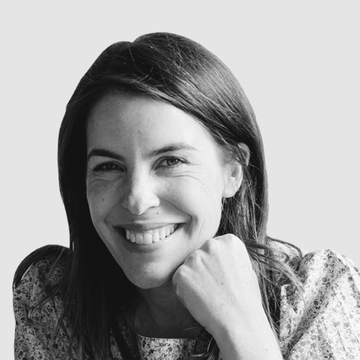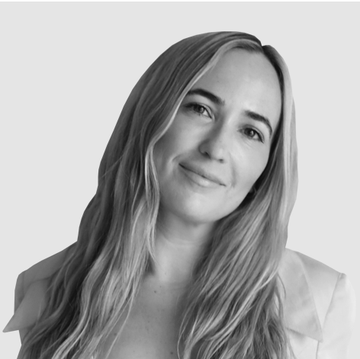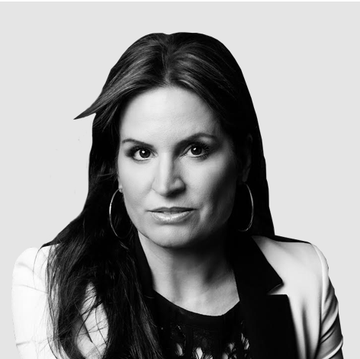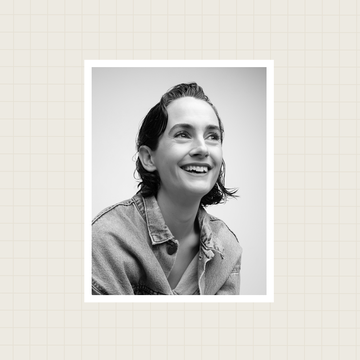In ELLE’s monthly series, Office Hours, we ask people in powerful positions to take us through their first jobs, worst jobs, and everything in between. This month, we spoke with Yamiche Alcindor, the award-winning journalist and White House correspondent for PBS NewsHour. Recently, Alcindor was also named the new moderator of PBS’s weekly news analysis series Washington Week, a role once held by Alcindor’s mentor, the late journalism icon Gwen Ifill.
Alcindor was first inspired to become a journalist after learning how Jet magazine’s coverage of Emmett Till’s murder in 1955 changed the civil rights movement in America. Now, with her own work, she’s determined to spread empathy through storytelling. “I hope people know that the questions I’m asking are not just about power and politics,” she tells ELLE.com. “They’re grounded in this real sense of being a human.” Below, Alcindor shares how she felt stepping into her latest role and how she navigates ambition, criticism, and finding your purpose.
My first job
My very first job was working at McDonald’s when I was 16. I was doing a number of things, including squirting ducks out of the driveway because I’m from Miami, Florida, and ducks would hold up the drive-through. NPR did this story that said, at the time, McDonald’s was the No. 1 place that both you and your parent worked. My mom is a Haitian immigrant who came here in her 20s, and I turned to her and said, “That’s really funny. Obviously you didn’t work at McDonald’s.” She was like, “I absolutely worked at McDonald’s.” So I am a second-generation McDonald’s worker.
My worst job
I was a telemarketer. I was sitting in a cubicle with a bunch of other people, like what you see on TV. I forget what we were trying to sell people, but it was just a terrible existence. I hope I never have to do that again.
What I’d tell my younger self
You will get goosebumps when you are writing or reporting stories, because you will be walking in your purpose. Don’t be discouraged by all the people who are going to say you don’t belong. People are going to say you’re not pretty enough to be on TV. People are going to say you’re not experienced enough to cover the White House. People are going to say you need to wait your turn and get in line. But you deserve everything that you will get. Just focus on treating journalism as a service to people.
How I felt joining Washington Week
I was so lucky to have Gwen Ifill as a mentor. She told me, “Don't make yourself small, and don’t change who you are to make people comfortable.” I was so excited to take over and become an anchor, but I was also nervous. I felt the weight of walking into something that meant so much to Gwen. I know there were people who maybe didn’t think I deserved this job, and I could hear a little whisper in the back of my head: Can I really do this? Am I really good enough? I’ve been lucky that with every single show I feel like I’ve hit my stride, and this is where I’m supposed to be.
What I’m still learning to do
I’ve had to understand that it’s okay to be ambitious. It’s okay to want more and more and more. And in wanting more and more, it also means serving more and more. It’s not just having platforms to have platforms. It’s having those platforms, and remembering the reason why I became a journalist is because a 14-year-old boy was murdered in 1955 and to always have that grounding. If I have that, then I won’t be led astray when people are questioning whether or not I’m doing too much or the show is expanding too much or I’m going after things I don’t deserve. I remember that my heart is in Mississippi in 1955, and that’s my guiding light. It’s making sure that everything that I do is about serving people and illuminating the human condition.
The guiding questions I always ask
We’re all strong beings in some way, especially if you’re a journalist. You develop tough skin. You’ve learned how to make it through. If you end up working at a great place, you’ve learned how to will yourself to almost anything. But you have to also figure out, “Okay, now that I’m here, am I happy? Is this what I want to be doing? Is this how I want to be doing it? Is this where I should be? Am I taking this job because someone else thinks that it’s right for me? Do I think that this is the space that is conducive to my wellbeing? And if not, how do I make an exit?” Those are all questions I ask myself all the time to make sure I’m okay and I’m supported.
How I keep perspective in my career
I absolutely ground myself in the lived experience of African Americans. Black people have really had to struggle to be in these spaces. It gave me the fortitude to survive 2020, having lost some family members and some friends, and really appreciate the opportunity to hold powerful people accountable. In so many of my interactions with former President Trump, I was doing the work that I think my ancestors would want me to do, asking him questions that are at the core of the Trump presidency. Was he really trying to embolden white supremacists? Are we going to be able to make it through this pandemic? I’m so grounded in this idea that I come from a legacy of Black people who were killed, who were terrorized, who were made to feel less worthy in every sense of the word, but still survived. I’m also the child of Haitian immigrants who lived under a dictator who jailed members of my family. It is not lost on me that, when I have work issues or challenges, the blood coursing through my veins comes from Toussaint L’Ouverture, who staged the most successful slavery rebellion in history. I see myself as both a legacy of Black people, who made a way out of no way, and of Haitian people, in particular those who made way for so many others to live freely.
This interview has been edited and condensed for clarity.
